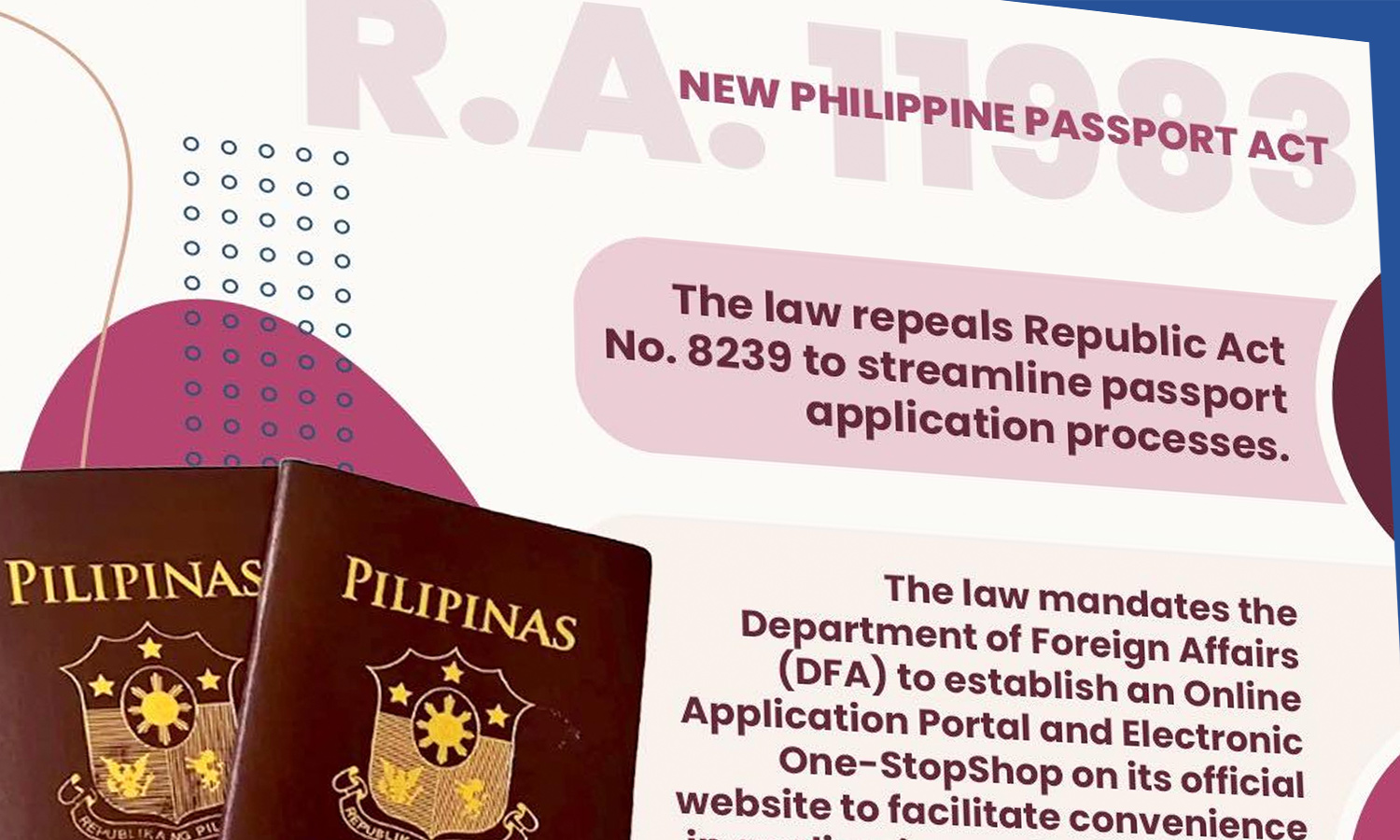The Philippines has long been grappling with issues regarding passport application processes, including long queues, bureaucratic red tape, and delays in passport issuance.
And as international travel has become increasingly common, recognizing the need to streamline the passport application process and make it more efficient, the Philippine government introduced the New Philippine Passport Act.
Signed into law on March 11, 2024, sponsored by Sen. Imee Marcos, Republic Act No. 11983, or an act providing for a new passport law, repealing for the purpose of Reublic Act No. 8239, otherwise known as the Philippine Passport Act of 1996 as amended and providing funds, this legislation aims to simplify the passport application process, reduce waiting times, and enhance overall service delivery to citizens.
The legislation requires the Department of Foreign Affairs (DFA) to create an Online Application Portal and Electronic One-Stop Shop on its website to simplify the process of applying and submitting requirements.
Additionally, the DFA is permitted to offer passport services outside of consular offices and foreign service posts (FSPs), including offsite and mobile services.
Dedicated lanes will be designated for passport applications by senior citizens, persons with disabilities (PWDs), pregnant women, minors aged seven and below, solo parents, overseas Filipino workers (OFWs), and individuals with emergency and exceptional circumstances.
Further, the DFA will organize provisions for standard passport applications of Muslim Filipinos traveling for the annual Hajj pilgrimage for a four-month duration, as specified by the National Commission on Muslim Filipinos upon request.
According to the new legislation, service fees associated with passport issuance and processing cannot exceed 30 percent of the standard passport fees. These fees gathered by the DFA will form the “Passport Revolving Fund,” earmarked for enhancing passporting, consular, and related services, excluding travel and transportation expenses.
The law also establishes and raises penalties for offenses such as unlawfully withholding passports, forgery, misuse of passports and other travel documents, and engaging in unfair or discriminatory practices, among other violations.
Source: Senate Of The Philippines

